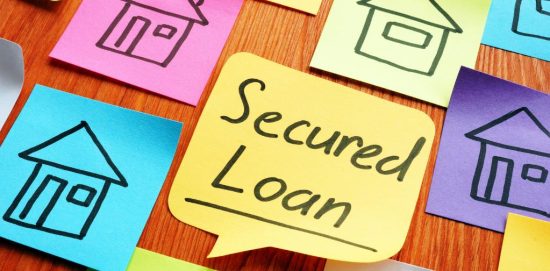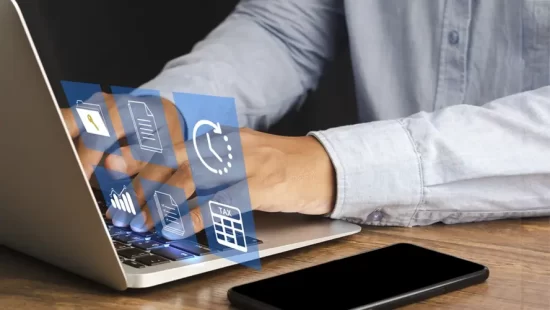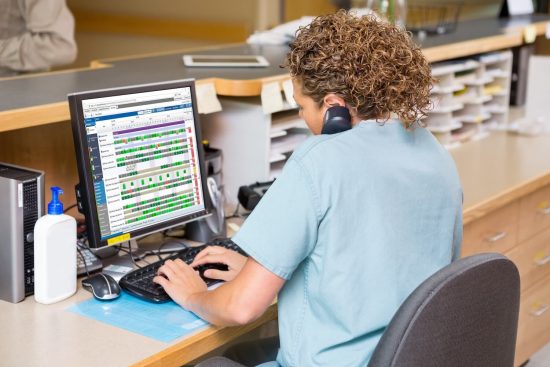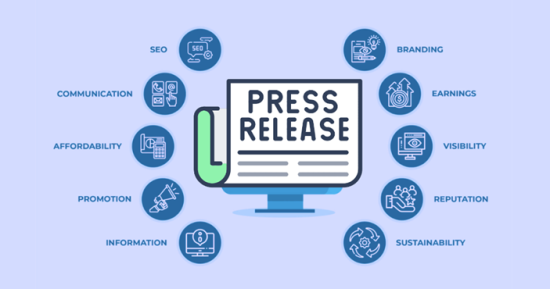
Did you know that over 44 million Americans were unemployed at the height of the COVID-19 pandemic? Yet, many of them were still able to access the financial assistance they needed through personal loans, even without a traditional job. If you’re currently without a steady paycheck, you may be surprised to learn that it’s still possible to get a loan – you just need to know the right strategies.
Even if you don’t have a job, you may still be able to get a personal loan by demonstrating that you have other reliable sources of income, such as disability benefits, alimony, or a spouse’s income. Lenders are more concerned with your ability to make loan payments than your employment status. This article provides expert tips on how to get a loan without a job, including understanding your loan options, documenting your income sources, providing asset documentation, exploring lender options, evaluating your eligibility, and avoiding predatory lending.
Understand Your Loan Options
If you need to secure a personal loan while unemployed, you may still be able to get approved by demonstrating your ability to repay the loan, even without a traditional job. Lenders typically consider your credit score, existing debt, and sources of income when evaluating your loan application.
For an unsecured loan, your income doesn’t necessarily have to come from employment – it can come from various sources like child support, disability benefits, pensions, dividends, or even your spouse’s earnings. For a secured loan, you may be able to qualify with no income at all, but you’ll need to provide assets as collateral.
Unsecured Loan
Unsecured loans do not require you to put up any assets as security, but lenders will still evaluate your creditworthiness and ability to repay based on your income sources, credit score, and debt-to-income ratio. Unsecured loans have become increasingly popular among individuals who need quick access to funds but don’t want to put their assets on the line as collateral. But what about those who are unemployed? Can a jobless person take a loan? The answer is not as straightforward as one might hope.
When it comes to unsecured loans, lenders typically evaluate your credit worthiness and ability to repay based on various factors, such as your credit score, income sources, and debt-to-income ratio. This means that if you’re unemployed and have no other steady income, it may be challenging to acquire an unsecured loan. Lenders want assurance that you have the means to make timely repayments.
Secured Loan

With a secured loan, you’ll need to provide collateral such as a car, home, or other valuable asset. This type of loan may be an option even if you don’t have any income, as the lender can seize the collateral if you default on the payments. Secured loans can be a viable option for individuals who find themselves in need of financial assistance but do not have a job. These loans require borrowers to provide collateral, such as a car, home, or other valuable asset. The presence of collateral gives lenders the assurance that they can recover their money if the borrower is unable to make the required payments.
If you find yourself in a situation where you have no income or assets, you may be wondering if it’s possible to take out a loan. The answer is yes, but it can be challenging. Traditional lenders typically require proof of income and assets to assess your ability to repay the loan. However, there are options available for those without a job or proof of income.
No Income, No Assets (NINA) Loan
A NINA loan is a type of secured loan that doesn’t require proof of income or assets. Instead, the lender uses the value of the collateral to determine the loan amount and approve the application. However, these loans often come with higher interest rates and fees. In a world where having a steady source of income and assets is typically a prerequisite for obtaining a loan, the concept of a No Income, No Assets (NINA) loan may seem contradictory. But can a jobless person actually take out a loan with no income to show? And who would be willing to borrow money to someone in such a situation?
While it may be challenging for jobless individuals to secure traditional loans from mainstream lenders, there are alternative options available. Private lenders or online lending platforms may be more flexible with their lending criteria, considering factors beyond just income. They might take into account an individual’s credit history, educational background, or potential future earnings.
Title Loan
A title loan is a secured loan that uses your vehicle’s title as collateral. This can provide quick cash, but you risk losing your car if you can’t make the payments. Be cautious of predatory title lenders that charge exorbitant interest rates. Finding yourself in a financial emergency can be extremely stressful and overwhelming. In times like these, a title loan may seem like a viable solution to your immediate cash needs. But what exactly is a title loan and how does it work?
In simple terms, a title loan is a short-term loan that uses the title of your vehicle as collateral. The amount you can borrow is typically determined by the value of your vehicle. The process is relatively straightforward – you bring in your car’s title, provide some basic information, and the lender evaluates your vehicle’s worth. If approved, you receive the loan amount, and the lender holds onto the title until the loan is repaid. However, there may be situations where individuals find themselves in need of immediate cash, even if they are currently unemployed. The question arises, can a jobless person take a loan? The answer is, it depends.
Payday Loan or Cash Advance Loan
Payday loans and cash advance loans are short-term, high-interest options that should be avoided if possible. These types of loans can trap borrowers in a cycle of debt and should be considered only as a last resort. One common question that arises when it comes to payday loans or cash advance loans is whether a jobless person can take out such a loan. The answer is usually no, as these loans typically require proof of income. Lenders want assurance that borrowers will be able to repay the loan on time.
Payday Alternative Loan (PAL)
Some credit unions offer Payday Alternative Loans (PALs) as a more affordable alternative to traditional payday loans. PALs typically have lower interest rates and longer repayment terms. PALs are designed to help individuals facing financial emergencies access quick funds without falling into the debt trap often associated with payday loans. While traditional payday loans are notorious for their high interest rates and short repayment periods, PALs aim to provide a more borrower-friendly option.
Borrowing from Family or Friends

Asking loved ones for a loan can be a sensitive topic, but it may be a viable option if you have no other means of obtaining financing. Be sure to document the terms of the loan to protect the relationship. When faced with a financial emergency, many people wonder how to apply for an emergency loan. In some cases, turning to family or friends for financial assistance might be the only solution. While borrowing from loved ones can provide a lifeline during tough times, it’s essential to approach the situation delicately and with respect.
One common concern when borrowing from family or friends is whether you can get a loan without a salary slip. Unlike traditional lenders who typically require proof of income, borrowing from your loved ones may allow for more flexibility. Family and friends may be willing to lend you money based on trust and your relationship rather than strict financial documentation.
Credit Card Cash Advance
If you have an existing credit card, you may be able to get a cash advance, which can provide quick access to funds. However, cash advances often come with higher interest rates and fees than regular credit card purchases. If you find yourself in a financial pinch and wondering who can borrow you money, a credit card cash advance may be an option. Most credit cards allow you to withdraw cash from an ATM or request a cash advance directly from the credit card issuer. This can provide immediate access to funds without the need for a traditional loan application process.
Cash-Out Refinance or Home Equity Loan
If you own a home, you may be able to tap into your home’s equity through a cash-out refinance or a home equity loan. These options can provide larger loan amounts, but they also use your home as collateral. If you find yourself in need of extra cash, you may be wondering about the best ways to access funds. Two popular options are cash-out refinancing and home equity loans. These options allow homeowners to borrow against the equity in their property, providing larger loan amounts than traditional personal loans. However, it’s important to understand the differences between the two.
Debt Management Plan (DMP)
A Debt Management Plan (DMP) is a way to consolidate and pay off multiple debts through a credit counseling agency. This can help you manage your existing obligations without taking on additional debt. One common question people have is, “Is there any government loan for unemployed individuals?” Unfortunately, the answer is no. Government loans are typically provided to individuals who have a steady income and can demonstrate their ability to repay the loan. However, there are other options available for those who are unemployed and in need of financial assistance.
Document Your Income Sources
Even if you don’t have a traditional job, lenders may still consider a variety of income sources when evaluating your loan application. These can include child support, alimony, disability benefits, social security, pensions, annuities, dividends, interest, and your spouse’s income. By being able to document some form of reliable income, you can increase your chances of qualifying for an unsecured loan rather than having to rely on a secured loan. If you find yourself in a situation where you are unemployed and struggling with debt, you may be wondering if there are any government loans available to help.
The answer is that there are some government programs that provide loans or assistance to individuals who are unemployed, but they often have specific eligibility requirements and may not be readily accessible to everyone. It is always recommended to check with your local government offices or social service agencies to see if you qualify for any assistance programs.
Child Support or Alimony

If you receive child support or alimony payments, be sure to provide documentation such as court orders or bank statements to prove this income. Lenders will want to see that these payments are reliable and ongoing. When it comes to child support or alimony, many people find themselves in a financial bind. They may wonder, “Who can borrow me money?” or “How can I get a loan if I am not working?” These are valid concerns, as traditional lenders often require proof of income before approving a loan. But what options do individuals have in such situations?
One possibility is to explore personal loans. While most lenders typically require proof of income, there are some institutions that offer loans without this requirement. These lenders may consider other factors such as credit history, assets, or guarantors. So, if you have a good credit score or valuable assets, you may have a better chance of securing a loan.
Disability Benefits or Social Security
Income from disability benefits or Social Security can also be used to help qualify for a loan. You’ll need to provide proof of these government benefits, such as award letters or deposit slips. For individuals who are unemployed and wondering if there are any government loans available, disability benefits or Social Security can potentially provide some financial assistance. These government benefits can be used as a source of income when applying for a loan. However, it is important to note that eligibility requirements may vary depending on the type of loan and lender.
Pension or Annuity
Steady income from a pension or annuity may be viewed favorably by lenders. Have your pension or annuity provider furnish documentation of your monthly or annual payments. This is often enough to satisfy the lender’s requirement of proof of income. However, what about those who find themselves without a job? Can a jobless person take a loan?
In most cases, traditional lenders require applicants to have a stable source of income or proof of employment. This can make it difficult for jobless individuals to secure a loan. However, there are alternative options available for individuals in this situation.
Dividends or Interest
If you receive dividends from investments or interest from savings accounts, these can be counted as income as well. Provide recent statements to demonstrate the reliability of these income sources. Dividends or interest can be a source of income for individuals, especially those who have invested in stocks or have savings accounts. When it comes to financial stability, every little bit counts. However, for those who are unemployed and wondering if they can rely on dividends or interest as a means of financial support, it’s essential to understand the limitations.
While dividends and interest can help bolster your income, they might not suffice as a primary source of livelihood when you’re not working. These earnings depend on your investments or savings, and the amount you receive can fluctuate. Plus, if you are unemployed and looking for a loan, financial institutions often require a stable source of income, which dividends or interest may not meet.
Spouse’s Income
Even if you don’t have a job, a spouse’s income can help strengthen your loan application. Be prepared to provide documentation of your spouse’s employment and earnings.
By carefully documenting all your potential income sources, you can increase your chances of getting approved for a loan, even without a traditional job. This can make a significant difference in whether you qualify for an unsecured or a secured loan.
How to get a loan without a job
Even without a job, you may be able to get an emergency loan if you can demonstrate a reliable source of income, such as disability benefits, a spouse’s income, or other non-employment sources. Lenders are generally more concerned with your ability to make loan payments than your employment status. However, you will need to provide documentation of your income sources to qualify. Avoid predatory lenders that offer loans without requiring proof of income, as these often come with very high fees and interest rates that can trap you in a cycle of debt.
If you find yourself in a situation where you need money but can’t get a loan, there are still options available to you. Exploring alternative sources of funding, such as assistance programs or borrowing from family and friends, can be viable solutions when traditional loans are not an option.
Provide Asset Documentation
If you don’t have enough income to qualify for an unsecured loan, you may be able to qualify for a secured loan based on your assets. Lenders may consider a variety of assets when evaluating your loan application, including bank accounts, certificates of deposit, vehicles, boats, retirement accounts, stocks, bonds, jewelry, artwork, and other valuable items. This can be a viable option for those who can’t provide a traditional salary slip or proof of income.
Bank Accounts or Certificates of Deposit
Lenders may look at your bank account balances or certificates of deposit as collateral for a secured loan. They want to see that you have liquid assets that can be used to make loan payments if your income sources are disrupted. Bank accounts and certificates of deposit play a vital role in our financial lives. They not only provide a secure place to store our money but also offer various benefits and opportunities such as loans. However, one might wonder if it is possible for a jobless person to take a loan.
In general, banks and financial institutions require applicants to have a steady source of income when applying for a loan. This income serves as a reassurance to lenders that the borrower will be able to make timely payments. Thus, if a person does not have a job, it can be challenging to get a loan from traditional lenders.
Vehicles or Boats
If you own a vehicle or boat outright, you may be able to use it as collateral for a secured loan, even if you don’t have a job. The lender will require a professional appraisal to determine the item’s value. However, if you are jobless and looking to take out a loan for a vehicle or boat, it may be more difficult to obtain traditional financing. Most lenders require proof of income or employment as a way to ensure that the borrower has the means to repay the loan.
If you are in this situation and wondering how you can get a loan without a job, there are some options to consider. One option is to find a co-signer who has a stable income and is willing to take responsibility for the loan if you are unable to make the payments. By having a co-signer, you may increase your chances of getting approved for a loan.
Retirement Accounts
Funds held in retirement accounts like 401(k)s or IRAs can sometimes be used as collateral for a secured loan. However, this should be approached with caution, as it can have long-term consequences for your retirement savings. Retirement accounts are an essential financial tool for ensuring a comfortable post-work life. However, during emergencies or unexpected financial setbacks, many people may wonder if there are government loans available for the unemployed or if they can get a personal loan without proof of income. While these questions are understandable, it’s important to explore other avenues before considering your retirement accounts as an option.
Stocks or Bonds
Investments in stocks, bonds, or other securities can also be leveraged as collateral for a secured loan. The lender will assess the current market value of these assets when determining your loan eligibility. If you’re in need of immediate financial assistance, exploring options beyond traditional loans such as stocks and bonds can be a viable solution.
While they are primarily seen as investment tools, stocks, bonds, and other securities can also be leveraged as collateral for a secured loan. When applying for an emergency loan using these assets, the lender will evaluate their current market value to determine your eligibility. This type of loan allows you to access funds quickly without the need for a credit check or proof of income.
Valuables like Jewelry or Artwork
Expensive or rare personal items such as jewelry, fine art, or antiques may be accepted as collateral for a secured loan, even if you don’t have a traditional job. The lender will require a professional appraisal to verify the value of these assets.
Regardless of the type of asset you plan to use, the lender will likely require a professional appraisal and may ask to take physical possession of the item until the loan is repaid. This helps ensure the asset can be liquidated if you default on the loan.
Explore Lender Options
When looking to obtain a loan without a job, you can explore options from both traditional lenders such as banks and credit unions, as well as online lenders. Many banks and credit unions offer secured loan options that may be accessible even without traditional employment income. These institutions often consider alternative sources of income when evaluating loan applications.
Banks and Credit Unions
Traditional financial institutions like banks and credit unions can be a viable option for securing a loan without a job. These lenders may be more willing to consider your overall financial profile, including any non-employment income sources you can document, such as government benefits, pensions, or a spouse’s earnings. Researching the specific loan products and eligibility criteria at local banks and credit unions in your area can help you identify the most suitable options.
Online Lenders
In addition to brick-and-mortar lenders, online lending platforms have become increasingly popular for those seeking loans without a job. These digital lenders often have more flexible approval criteria and may be more willing to consider alternative income sources when evaluating your application. However, it’s important to exercise caution when working with online lenders, as some may engage in predatory practices, such as offering can i get a loan from google pay?, how to get a mudra loan?, or even can i get a 10 lakh loan? without proper documentation. Be sure to research the reputation and terms of any online lender before applying.
Regardless of whether you choose a traditional or online lender, it’s essential to provide thorough documentation of your income sources and financial situation to improve your chances of securing a loan without a job. Avoid is a buddy loan safe? or how can i get a loan in 5 minutes? as these may be signs of predatory lending practices.
Evaluate Your Eligibility
In addition to your income sources, lenders will also consider your credit score and debt-to-income ratio when evaluating your loan application. Even without a job, you may be able to qualify for a personal loan if you have a good credit score, even if it’s an unsecured loan. However, a high debt-to-income ratio above 50% may make it difficult to get approved, as lenders want to ensure you have sufficient income to cover the new loan payment. Be prepared to provide documentation of both your credit history and current debt obligations.
Credit Score Requirements
Lenders typically look for a credit score of 600 or higher to approve a personal loan, even for those without a job. If your credit score is on the lower end, you may still be able to qualify for a secured loan or a loan with a co-signer. Providing documentation of your consistent payment history and credit utilization can help demonstrate your creditworthiness to lenders.
Debt-to-Income Ratio
Your debt-to-income (DTI) ratio is a key factor in loan eligibility, as it shows lenders how much of your income is already committed to debt payments. Even without a job, lenders will want to see that your other sources of income can comfortably cover the new loan payment. A DTI above 50% is generally considered high and may make it challenging to get approved for a loan without a salary slip. Be prepared to provide detailed information on your existing debt obligations.
Avoid Predatory Lending
When searching for a loan without a job, it’s crucial to steer clear of predatory lending options like payday loans and title loans. These types of loans often come saddled with exorbitant interest rates and fees, trapping borrowers in a vicious cycle of debt.
Payday lenders typically do not require a credit check, but they may automatically withdraw payments from your bank account on your next payday, regardless of whether you can afford it. Title lenders, on the other hand, use your vehicle as collateral, meaning they can repossess your car if you default on the loan.
Rather than succumbing to these high-cost, short-term loans, focus your efforts on more affordable options that align with your financial situation. Explore alternatives such as can I get a loan from google pay?, how to get a mudra loan?, can i get a 10 lakh loan?, is a buddy loan safe?, and how can i get a loan in 5 minutes? to find a solution that works best for your needs and budget.
Consider Alternatives
If you are unable to qualify for a personal loan without a job, there are other alternatives you should consider before taking on debt. Exploring options such as negotiating payment plans or extensions with your current creditors, looking into credit card applications, and seeking assistance from various programs and nonprofits can provide alternative solutions to address your financial needs.
Payment Plans or Extensions
Reach out to your current creditors and inquire about the possibility of negotiating payment plans or extensions. This may allow you to temporarily reduce or postpone payments, providing some relief until you are able to secure a more stable income source. By communicating openly with your creditors, you can often find mutually agreeable arrangements that can help you manage your obligations without taking on additional debt.
Credit Cards

If you have a reliable source of income, even if it’s not from traditional employment, you may find it easier to qualify for a credit card than a personal loan. Credit cards can provide a flexible financing option to cover emergency expenses or other short-term needs, though it’s important to manage the usage and payments responsibly to avoid spiraling into further debt.
Assistance Programs
Explore the various assistance programs and nonprofits in your local community that may be able to provide financial aid or other resources to help cover emergency expenses. These organizations often have a deep understanding of the challenges faced by individuals without steady employment and can connect you with appropriate support and services.
Borrowing from Family or Friends
As a last resort, borrowing money from family or friends may be an option to consider. However, it’s crucial to document the terms of the loan and ensure that the arrangement does not jeopardize these important relationships. Be transparent about your financial situation and work together to establish a mutually agreeable repayment plan.
Wrap-Up
In conclusion, it is possible to get a loan without a job, but you will need to demonstrate that you have other reliable sources of income, such as disability benefits, alimony, or a spouse’s earnings. Lenders are more concerned with your ability to make loan payments than your employment status. By understanding your loan options, documenting your income sources, providing asset documentation, exploring lender options, and avoiding predatory lending, you may be able to secure a personal loan even without a traditional job.
However, be sure to carefully evaluate the terms and risks before taking on any new debt, and consider alternatives like payment plans, credit cards, and assistance programs if a personal loan is not the best option for your financial situation. Whether you’re looking to get a loan without a job, wondering if it’s possible to get a loan without a job, or exploring how to get a loan if you’re not working, the key is to provide lenders with evidence of your ability to make the required payments.
Similarly, if you’re seeking a personal loan without proof of income or wondering about government loans for the unemployed, the strategies outlined in this article can help guide you through the process. The goal is to find a financing solution that aligns with your unique circumstances and financial needs, while avoiding the pitfalls of predatory lending practices.
FAQs on Getting a Loan Without a Job
Is it possible to get a loan without a job?
Yes, it is possible to get a loan without a job by demonstrating alternative sources of income, such as freelance work, rental income, or government benefits.
What are some options for how to get a loan without a job?
Options for getting a loan without a job include applying for a personal loan with a co-signer, using collateral for a secured loan, or exploring peer-to-peer lending platforms.
What documentation is needed to get a loan without a job?
To get a loan without a job, you may need to provide documentation of alternative income sources, bank statements, and a good credit history to know your ability to repay the loan.
Can having a good credit score help you get a loan without a job?
Yes, having a good credit score can improve your chances of getting a loan without a job, as it demonstrates your reliability in repaying debts.
Are specific lenders specializing in loans for those without a job?
Some lenders and online platforms specialize in providing loans to individuals without traditional employment, often focusing on alternative income verification.








